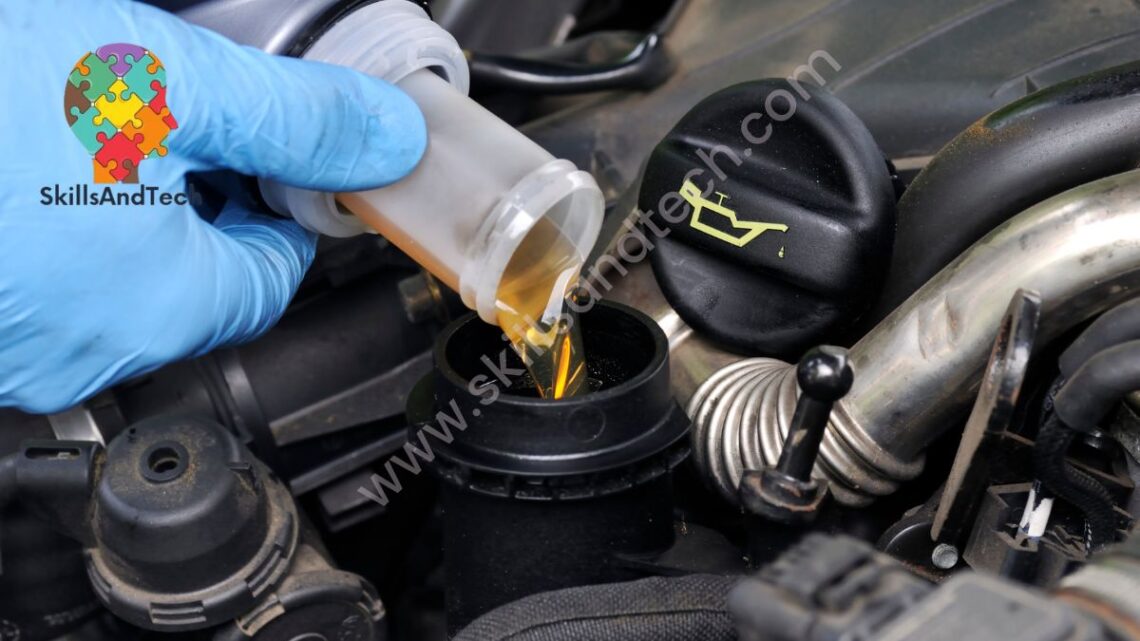
How to Start an Oil Change Business | SkillsAndTech
Operating an oil change business can be lucrative, if done correctly. The average vehicle now sells for more than $20,000, and people are eager to extend the lives of their cars as much as possible. By offering preventative maintenance services, oil change businesses can fill this consumer need. The plan below will provide you a basic outline you can use to start a successful oil change operation.
See Also: How to Open a Pawn Shop
Table of Contents
How to Start an Oil Change Business
Decide if you want to franchise. This is the first major decision most oil change business owners face. Franchises offer marketing and operations support, but they come with large fees. If you decide to operate independently, you will save money on fees but will need to make more decisions for yourself, without a proven support network. If you are interested in purchasing a franchise, decide what you want out of the relationship. If you primarily want marketing and brand recognition, you may lean toward a larger franchisor, such as Jiffy Lube or Valvoline. If you just want construction and operations support, there are smaller franchises that may make sense.
See Also: How to Start a Beauty Supply Store
Get your financing in place. You can start by contacting your personal bank, where you already have an established relationship. If you work with a franchisor, the company may suggest a financing company it works with regularly. Be sure to investigate Small Business Administration loans, which can be a bit easier to get.
Find land for your oil change business. You can either purchase land outright or lease it, perferably long term. Make sure the land is zoned for an oil change facility, or that you get the proper zoning exemptions. When purchasing or leasing land, you’ll need to consider average daily car counts; speed limits (it’s hard to turn onto your lot at 55 miles per hour); the presence of stop lights or signs that could slow traffic near your business; whether it is easy to take a right- and left-hand turn onto the lot (you don’t want medians); and whether the lot gives you room to grow and add other profit centers, such as a car wash.
See Also: How to Start Business in Private Mailboxe
Hire an architect. Try to work with a firm that has experience designing oil change facilities or, at the very least, car care businesses. If you work with a franchisor, the company may be able to provide blueprints from past projects and may insist the building meet certain design specifications.
Build your facility. Any lube owner will tell you that this is the most frustrating part of the process. Expect delays, particularly if you live in a part of the country with unpredictable weather. Make sure you work with a contractor with experience building oil change facilities. Unless you plan to use lifts, digging the pit, where your crew works under the cars, is important and it helps to have an experienced contractor.
See Also: How to Start a Supplement Company
Line up staff and suppliers. Carry business cards with you everywhere you go. When you get good customer service at a retail establishment, give the employee your card. Good customer service is critical in the oil change business–actually changing the oil is a skill that can be learned. Also talk to your suppliers, order initial inventory and discuss how future orders will be handled. If you are purchasing a franchise, this process should be streamlined, as you will be given preferred suppliers. Suppliers often can help train your staff.
Conduct a soft launch. This is when you open the doors without much fanfare. The goal here is to service a handful of customers and work out any operational kinks before you start promoting aggressively.
See Also: How to Start a Small Crepe Business
Approach fleet accounts. Talk to rental car companies, taxi operators, local police precincts, and anyone else who has a fleet of cars. Fleet business provides a steady revenue stream that can help sustain your business even when times are slow.
Stage your grand opening. This is where you announce your business to the world. Hang a large banner, place coupons and advertisements in local media, and spread the word far and wide. The goal should be to get your market to try your services. Once they do, you will have contact and vehicle information that will allow you to conduct follow-up marketing for repeat business.






3 Comments
Pingback:
Pingback:
Pingback: